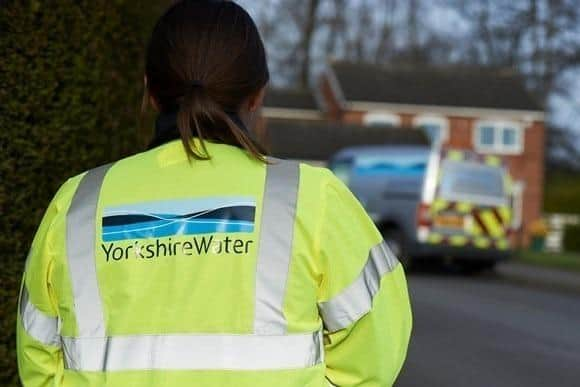'It’s always best to bin it': Fishing rods and suitcases cause blockages in Yorkshire's sewers
Yorkshire Water, which dealt with 15,095 blockages in 2023, is reminding customers they should only flush faeces, urine and toilet paper.
The company also stated that wet wipes caused 40 per cent of all obstructions as they do not break down in the sewers, even if they are labelled as flushable or biodegradable.
Advertisement
Hide AdAdvertisement
Hide AdLeeds (2,730), Sheffield (2,707) and Doncaster (2,129) were hotspots for blockages in Yorkshire this year, as the highest number of incidents were recorded in these cities.


The obstructions can cause sewers to flood and spill out onto the roads, but water companies also discharge effluent into rivers, streams and the sea to relieve pressure on their networks.
Ben Roche, director of wastewater at Yorkshire Water, said: “We’re urging people to really consider what they flush and pour down their drains this Christmas season. Only the three 3Ps – pee, poo and paper – should be flushed down the toilet.
“It’s always best to bin it, not block it. The next time you go to pour away any oil from your Christmas turkey or your roasties, make sure it goes in the bin rather than down the drain.
Advertisement
Hide AdAdvertisement
Hide Ad“Once inside the pipes, fats and oils build up and cause blockages that can stop your wastewater moving away from your house – even if you use boiling water.”


Items which caused some of the most bizarre blockages of the year include a fishing rod in Whitby in January, two wigs in Bradford in April and four suitcases in Wakefield in July.
It comes after Yorkshire Water told customers their water bills would increase by almost £150 a year by 2030 as additional funding was needed to upgrade the sewage network and reduce discharges by a third.
It said the money would be used to support a five-year investment programme worth £7.8bn.
Advertisement
Hide AdAdvertisement
Hide AdBetween 2021 and 2022, the number of discharges from storm overflows recorded in Yorkshire dropped by 22 per cent, from 70,062 down to 54,273.
Across the country discharges fell by 19 per cent over that period, from 372,533 to 301,091.
Chief executive Nicola Shaw said she was pleased with the reduction but last year’s drought had a significant impact as there was less pressure on the sewage system during spells of dry weather.
Last month, Yorkshire Water was ordered to donate a record £1m to charity after sewage spills killed almost 1,500 fish in Harrogate.
Advertisement
Hide AdAdvertisement
Hide AdAn investigation found it had discharged effluent from a combined sewer overflow in Hookstone Road in August 2016 and polluted water along a 2.5km stretch.
There were more spills over the following months, even though Yorkshire Water is only allowed to discharge into that stream when the nearby storm sewage facility is full following periods of heavy rain or snow.
The company has apologised and said the spills happened after a plank of wood became lodged in the sewer and caused a blockage, which was not flagged by faulty telemetry equipment.
It has also spent £1.85m on upgrading sewers in the area since the incident.